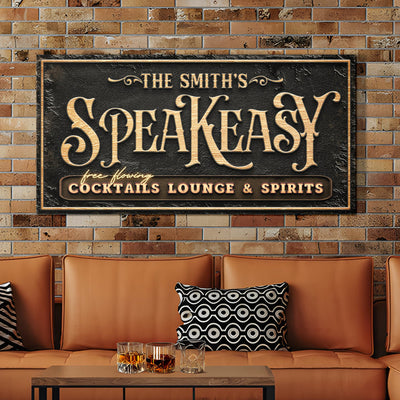Coffee bars have a rich history that spans centuries. Originating in the Middle East in the 1500s and spreading to Europe in the 1600s, coffee houses have served as hubs for exchanging ideas and conducting business. Today, specialty coffee shops like hutch coffee bar have embraced this tradition, offering artisanal coffee and a cozy atmosphere for coffee lovers to enjoy.
Key Takeaways:
- The history of coffee bars dates back to the Middle East in the 1500s, later expanding to Europe.
- Coffee houses were known as "penny universities," where people gathered for intellectual conversations.
- Coffee houses arrived in England in the 17th century, providing an alternative to taverns.
- Continental Europe saw the rise of coffeehouse chains and espresso bars.
- Coffee houses have played a significant role in intellectual movements and society throughout history.
The Origins of Coffee Houses in the Middle East
Coffee houses have a rich history that dates back to the Middle East in the early 1500s. It all began in Mecca, where coffee houses served as more than just places to enjoy a cup of coffee. They were gathering spots for political discussions and the exchange of ideas among the locals.
Over time, the coffee house culture spread to other cities in the region, such as Vienna, Damascus, and Constantinople. These coffee houses became important centers for political, social, and business activities in their respective communities.
Political Gatherings and Exchanging Ideas
In the Middle East, coffee houses served as meeting places for political activists, intellectuals, and scholars. People would gather to discuss current events, share their views on various topics, and engage in thought-provoking conversations. These coffee houses became the breeding grounds for ideas, where individuals could freely express their opinions and engage in lively debates.
The exchange of ideas in coffee houses played a crucial role in shaping political movements and intellectual discourse in the Middle East.
Business Opportunites
Coffee houses also presented lucrative business opportunities. Entrepreneurs saw the potential in these establishments as places where people not only sought refreshment but also conducted business transactions. The vibrant atmosphere of coffee houses attracted businessmen, traders, and merchants who took advantage of the gathering of like-minded individuals to network, form partnerships, and strike deals.
Insights from Jean Chardin
The writings of Jean Chardin, a French traveler who visited the Middle East in the 17th century, provide valuable insights into the activities that took place in these coffee houses. Chardin's observations offer a glimpse into the vibrant coffee house culture of the time, highlighting the importance of these establishments in the social fabric of Middle Eastern societies.
"In the coffee-house...where they meet to converse and transact business, people of all sorts including the highest and the lowest...There one finds mutual acquantances and hears various news about everything happening in every corner of Europe; one finds young men who impart to their elders the latest novelties they have found...The coffee houses of the town are open and frequented at all hours of the day and night"
|
City |
Year Coffee Houses Established |
|
Mecca |
Early 1500s |
|
Vienna |
1683 |
|
Damascus |
1530 |
|
Constantinople |
1554 |
As coffee houses became popular in the Middle East and beyond, their influence would soon extend to Europe. Section 3 explores how coffee houses made their way to England and the impact they had on society.
Coffee Houses Come to England
In the 17th century, coffee houses arrived in England, offering an alternative to taverns for socializing and conducting business. Coffee houses quickly gained popularity as they promoted sobriety, providing a safer alternative to the often-contaminated water that was consumed at the time. These establishments became known as centers of commerce, where men gathered to exchange ideas and engage in intellectual discussions. Coffee houses were even referred to as "penny universities" because for just a penny, one could gain access to stimulating conversations and debates.
This shift in socializing had a significant impact on English society. While taverns had long been the primary gathering places for people to socialize, the rise of coffee houses introduced a new culture of sobriety and intellectual stimulation. Instead of drinking alcohol, patrons could now enjoy a cup of coffee while engaging in meaningful discussions.
**Quote**: "Coffee houses are places where the sober-minded gather to discuss business and exchange knowledge - it is a true penny university." - Samuel Pepys
Coffee houses attracted a diverse clientele, including merchants, tradesmen, scholars, and artists. These establishments became hotspots for conducting business deals, reading newspapers, discussing politics and current affairs, as well as fostering cultural and intellectual movements.
As the popularity of coffee houses grew, they began to surpass taverns as preferred venues for socializing and conducting business. The vibrant and intellectually stimulating atmosphere drew people from various backgrounds, creating a sense of community and exchanging ideas.
Notable Coffee Houses in England
Several notable coffee houses emerged in England during this time, further solidifying their importance in society. The following are a few examples:
|
Coffee House |
Location |
Famous Patrons |
|
Edward Lloyd's Coffee House |
London |
Marine insurance underwriters, later becoming the foundation of Lloyd's of London |
|
Jonathan's Coffee House |
London |
Original site of the London Stock Exchange |
|
Grecian Coffee House |
London |
Intellectuals, including Samuel Johnson and Joshua Reynolds |
These coffee houses not only served as hubs for business and intellectual discussions but also played a crucial role in the development of various industries, from insurance to stock trading.
As coffee houses continued to flourish in England, they experienced significant growth in numbers and became an integral part of the emerging coffee house culture that still exists today.
The arrival of coffee houses in England forever changed the social fabric of the country. They introduced a new way of socializing, promoting sobriety, and fostering intellectual discussions. Today, coffee houses remain cherished establishments where people gather to enjoy a cup of coffee, exchange ideas, and embrace the vibrant coffee house culture.
Coffee Houses in Europe
As coffee houses gained popularity, they quickly spread beyond England to continental Europe, becoming integral parts of European culture. Coffeehouses in Europe expanded their offerings beyond just coffee, serving a variety of alcoholic beverages and food to cater to the diverse preferences of their customers.
One notable development in the European coffeehouse scene was the emergence of coffeehouse chains operating on a franchise business model. These chains allowed for the standardization of coffee quality and ambiance across multiple locations, ensuring a consistent experience for customers.
Another significant trend in Europe was the rise of espresso bars. These specialized establishments focused on serving espresso and espresso-based drinks, catering to those who preferred a strong and concentrated coffee experience. Espresso bars quickly gained popularity and became go-to destinations for coffee enthusiasts.
Coffeehouses in Europe became more than just places to enjoy a cup of coffee. They became vibrant centers of social interaction, where people gathered to engage in conversations, read, write, entertain one another, and pass the time. These coffeehouses fostered a sense of community and intellectual exchange, attracting a diverse group of individuals.
Whether it was discussing politics, sharing artistic ideas, or engaging in lively debates, coffeehouses in Europe provided a platform for individuals to connect and collaborate. They became the backdrop for the exchange of thoughts and the birth of new ideas, contributing to the cultural and intellectual fabric of the societies they served.
Coffee Houses and Society
Coffeehouses have long been integral to social interaction and intellectual discussions. These establishments have served as informal clubs, providing a space for individuals to gather, connect, and exchange ideas over a cup of coffee. The atmosphere of coffeehouses encourages open dialogue and fosters a sense of community.
During the 1950s and 1960s, coffeehouses became significant hubs for singer-songwriter performances, particularly in the folk music scene. These intimate settings allowed musicians to share their music and connect with their audience on a more personal level. From the likes of Bob Dylan to Joan Baez, coffeehouses played a crucial role in the development and popularization of emerging artists.
"Coffeehouses have always held a special place in my heart. It's where I honed my craft, playing for intimate audiences who appreciated the power of a well-crafted song." - Bob Dylan
Coffeehouses have played a pivotal role in shaping society and culture throughout history. From providing a platform for intellectual discussions to fostering artistic expression, these establishments continue to be cherished spaces for socializing, learning, and sharing experiences.
The Informal Club Atmosphere
One of the defining characteristics of coffeehouses is their informal club atmosphere. Unlike formal institutions, coffeehouses provide a relaxed and welcoming environment for people to engage in conversations and debates. Regular patrons often build relationships with like-minded individuals, forming communities founded on shared interests and common passions.
Whether it's discussing literature, politics, or philosophy, coffeehouses have served as meeting grounds for intellectual discussions. The comfortable setting and the presence of coffee as a catalyst for conversation have made coffeehouses natural hubs for free-thinking and the exchange of ideas.
Embracing Artistic Expression
Alongside intellectual discourse, coffeehouses have historically embraced artistic expression. Singer-songwriter performances have been a staple in many coffeehouses, offering a platform for musicians to showcase their talents and connect with audiences on an intimate level.
Coffeehouses have been spaces where artists can experiment, try new material, and receive direct feedback from the audience. From Joni Mitchell to Simon & Garfunkel, many iconic musicians have graced the stages of coffeehouses throughout their careers, establishing a rich tradition of artistic presence and creativity in these establishments.
"Coffeehouses provided the nurturing space I needed as a young artist. The intimate setting allowed me to connect with my audience, and their feedback shaped my growth as a musician." - Joni Mitchell
Furthermore, coffeehouses have been instrumental in introducing new art forms and cultural movements. From poetry readings to performance art, these establishments have championed diverse artistic expressions, paving the way for creativity to flourish.
Therapy In A Cup Coffee Bar Sign II
Coffee Houses and Monarchs
Throughout history, coffeehouses have often found themselves at odds with rulers who sought to control the consumption of coffee and the activities that took place within these establishments. Two notable examples include Sultan Murad IV of the Ottoman Empire and King Charles II of England.
Sultan Murad IV: The Coffee Ban
In the early 17th century, Sultan Murad IV of the Ottoman Empire implemented a strict ban on coffee. He believed that coffee's stimulating effects were detrimental to society and issued a decree that made the consumption of coffee a capital offense. Sultan Murad IV viewed coffee's popularity among the population as a threat to his rule and sought to eliminate its influence.
King Charles II: Spies and "False News"
During the reign of King Charles II of England, coffeehouses became gathering places for intellectuals, businessmen, and other members of society. However, the free exchange of ideas and conversations that took place within these establishments raised concerns for the king. Charles II believed that coffeehouses were breeding grounds for "false news" and political dissent, prompting him to dispatch spies to infiltrate the coffee houses of London.
The king's spies, known as "mugwumps," were tasked with monitoring the conversations and activities of coffee drinkers, as well as reporting any potential threats to the crown. However, despite these efforts to control the flow of information and suppress dissent, the coffeehouses continued to thrive and serve as social and intellectual hubs.
"The freedom of speech and thought was paramount in coffeehouses, and rulers found it difficult to control the exchange of ideas that took place within these establishments."
The attempts by Sultan Murad IV and King Charles II to curtail the influence of coffeehouses ultimately failed. As coffee and coffeehouses became deeply ingrained in society and culture, their significance could not be denied or suppressed.
|
Sultan Murad IV |
King Charles II |
|
Issued a decree making the consumption of coffee a capital offense |
Dispatched spies to infiltrate coffee houses in London |
|
Viewed coffee as a threat to his rule |
Believed coffeehouses were sources of "false news" |
|
Attempted to eliminate coffee's influence |
Attempted to control the flow of information |
Coffee Houses and Intellectual Movements
Coffee houses have played a significant role in fostering intellectual movements throughout history. From the Enlightenment to revolutionary planning and modern-day literary circles, these establishments have served as hubs for idea exchange, debate, and creative inspiration.
The Enlightenment Gathering
During the Enlightenment, coffee houses served as meeting places for influential thinkers, philosophers, and scientists. Figures such as Voltaire, Rousseau, and Isaac Newton would gather in coffee houses to discuss philosophy, science, and politics, fueling the intellectual and cultural developments of the time.
"The coffee house is the place where the greatest minds meet to engage in intellectual dialogue and exchange ideas. It is the birthplace of knowledge and enlightenment," remarked Voltaire, renowned philosopher and writer of the Enlightenment era.
Revolutionary Planning and Paris Cafés
Paris cafés became instrumental in the planning of revolutionary movements, most notably during the French Revolution. In coffee houses scattered across the city, revolutionaries, including Maximilien Robespierre and Jean-Paul Marat, met to strategize and organize the storming of the Bastille. The coffee houses provided safe spaces for clandestine discussions and revolutionary plotting.
"These coffee houses are not merely places to enjoy a cup of coffee; they are the breeding grounds of revolutionary ideas that will shape the future of our nation," declared Marat during one of his secret meetings in a Paris café.
The spark of revolution was ignited in these coffee houses, with ideas of freedom, equality, and democracy gaining momentum in the midst of heated debates and impassioned speeches.
Modern-Day Literary Circles: Simone de Beauvoir and Jean-Paul Sartre
In more recent times, coffee houses continue to play a role in intellectual circles, particularly within the realm of literature. Authors such as Simone de Beauvoir and Jean-Paul Sartre utilized coffee houses as settings to plan, strategize, and discuss their writing.
"The coffee house is our refuge, where we seek inspiration and engage in fervent discussions about our literary aspirations," stated Beauvoir, reflecting on her time spent in Parisian coffee houses with Sartre.
These literary circles, fueled by caffeine and creative energy, shaped the trajectory of modern literature, influencing generations of writers and thinkers.
Notable Intellectual Movements and Figures in Coffee Houses
|
Intellectual Movement |
Key Figures |
Relevant Coffee Houses |
|
The Enlightenment |
Voltaire, Rousseau, Isaac Newton |
London coffee houses, such as Jonathan's Coffee House |
|
The French Revolution |
Maximilien Robespierre, Jean-Paul Marat |
Paris cafés, including Café Procope, Café de Foy |
|
Existentialism |
Simone de Beauvoir, Jean-Paul Sartre |
Parisian coffee houses, such as Café de Flore, Café de Deux Magots |
These examples demonstrate the enduring impact of coffee houses on intellectual movements and the exchange of ideas throughout history. From influential scientific discoveries to revolutionary uprisings and thought-provoking literature, the conversations and collaborations sparked within the walls of coffee houses continue to shape our world.
Coffee Houses and Notable Establishments
Throughout history, certain coffee houses have risen to prominence, becoming notable establishments that have left a lasting legacy in their respective industries. Let's explore some of these iconic coffee houses:
Edward Lloyd's Coffee House
Located in London, Edward Lloyd's coffee house holds a significant place in history as the birthplace of Lloyd's of London, a renowned insurance company. Established in the late 17th century, Edward Lloyd's coffee house became a popular meeting place for shipowners, merchants, and underwriters to discuss marine insurance.
Jonathan's Coffee House
Jonathan's coffee house, originally situated in London, played a pivotal role in the development of the financial industry. This notable establishment served as the original site of the London Stock Exchange. Founded in the late 17th century, Jonathan's coffee house became a hub for stockbrokers and traders, facilitating the growth of financial markets in England.
Tontine Coffee House
Located in New York City, the Tontine Coffee House holds historic significance as the first site of the New York Stock Exchange. Built in the late 18th century, the Tontine Coffee House became a gathering place for merchants, traders, and speculators. It served as a central location for financial transactions and played an instrumental role in shaping the development of American capitalism.
These notable coffee houses demonstrate how these establishments have not only provided spaces for socializing and enjoying coffee but also contributed to the growth of various industries, including insurance and finance.
|
Coffee House |
Location |
Significance |
|
Edward Lloyd's Coffee House |
London |
Became the foundation of Lloyd's of London, a prominent insurance company |
|
Jonathan's Coffee House |
London |
Original site of the London Stock Exchange |
|
Tontine Coffee House |
New York City |
First site of the New York Stock Exchange |
Conclusion
Over the centuries, coffee bars like hutch coffee bar have transformed into trendy destinations for artisanal coffee and espresso drinks. The rich history of coffee houses, originating in the Middle East and spreading throughout Europe, has deeply influenced the modern coffee house culture we enjoy today. These establishments have served as vital hubs for exchanging ideas, conducting business, and fostering social interaction.
With their cozy atmosphere and dedication to specialty coffee, local cafes have become the go-to spots for experiencing the unique charm of coffee house culture. Whether it's indulging in a perfectly crafted cup of artisanal coffee or savoring the bold flavors of espresso drinks, coffee bar sign offer an unparalleled experience for coffee enthusiasts.
The allure of these trendy coffee spots lies not only in their impressive coffee offerings but also in the thriving community that surrounds them. Coffee houses have always been a place where people gather to connect, engage in intellectual discussions, and share their passion for coffee. The evolution of coffee bars throughout history has shaped the way we appreciate and enjoy coffee today, making them an integral part of our modern culture.
FAQ
What is the history of coffee bars?
Coffee bars have a long history, originating in the Middle East in the 1500s and spreading to Europe in the 1600s. They have been hubs for exchanging ideas and conducting business, and have evolved over centuries to become trendy spots for artisanal coffee and espresso drinks.
Where did coffee houses originate?
Coffee houses originated in the Middle East, specifically in Mecca in the early 1500s. They were primarily places for political gatherings and the exchange of ideas. Coffee houses then spread to Vienna, Damascus, and Constantinople.
How did coffee houses become popular in England?
In the 17th century, coffee houses arrived in England as an alternative to taverns for socializing and conducting business. They became popular because they promoted sobriety, as coffee was a safer alternative to contaminated water. Coffee houses were known as centers of commerce and were referred to as "penny universities" due to their intellectual discussions and debates.
What were coffee houses like in Europe?
Coffee houses in Europe served various types of coffee, as well as alcoholic beverages and food. They became centers of social interaction, where people would gather to talk, read, write, entertain one another, and pass the time. Coffeehouse chains and espresso bars also emerged.
What role did coffee houses play in society?
Coffee houses have long been a place for social interaction and intellectual discussions. They served as informal clubs for regular members and provided a space for people to gather and share ideas. Coffee houses also played a role in the folk music scene and have influenced society and culture throughout history.
Have coffee houses faced opposition from rulers?
Yes, Sultan Murad IV of the Ottoman Empire made the consumption of coffee a capital offense, and King Charles II of England dispatched spies to infiltrate coffee houses in London, viewing them as sources of "false news." However, these attempts ultimately failed as coffee and coffee houses became deeply ingrained in society and culture.
How did coffee houses contribute to intellectual movements?
During the Enlightenment, figures like Voltaire, Rousseau, and Isaac Newton would gather in coffee houses to discuss philosophy and exchange ideas. In Paris, coffee houses were meeting places for revolutionaries plotting the storming of the Bastille. Coffee houses have historically been used by authors like Simone de Beauvoir and Jean-Paul Sartre as settings to plan and strategize their writing.
Are there any notable coffee house establishments?
Edward Lloyd's coffee house in London became the foundation of Lloyd's of London, a well-known insurance company. Jonathan's coffee house was the original site of the London Stock Exchange, and the Tontine Coffee House in New York was the first site of the New York Stock Exchange. These establishments have left a lasting legacy in their respective industries.
What is the significance of coffee house culture today?
Coffee bars, like hutch coffee bars, continue the tradition of providing a cozy atmosphere where people can enjoy specialty coffee, artisanal beverages, and espresso drinks. The rich history of coffee houses has shaped the coffee house culture we know today, drawing people to local cafes as trendy spots for their coffee fix.





